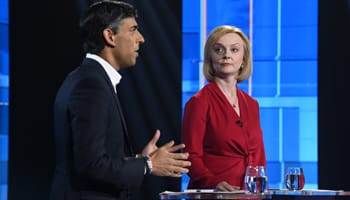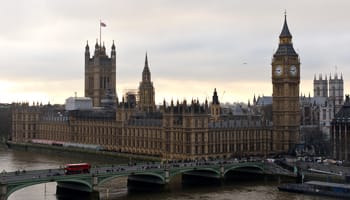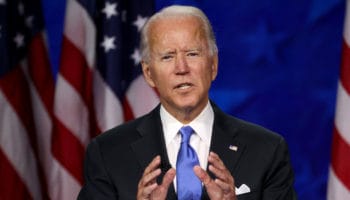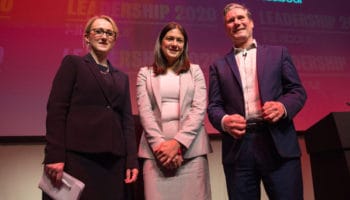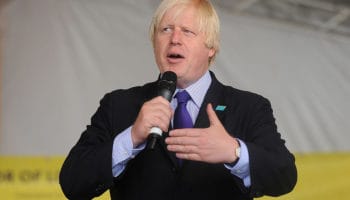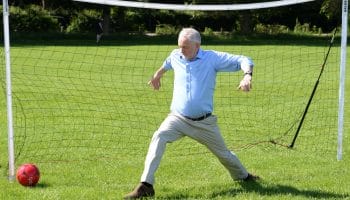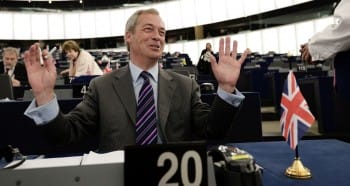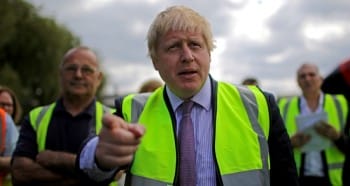Liz Truss is a firm favourite in the next UK Prime Minister odds after being left facing Rishi Sunak in the race to replace Boris Johnson.
The Foreign Secretary and the former chancellor finished in the top two places after five rounds of voting by Tory MPs and must now win over party members.
Sunak, the frontrunner throughout the parliamentary leg of the contest, received 137 votes in the final round of voting, with Truss on 113, narrowly pushing Penny Mordaunt into third place on 105.
However, polls suggest Truss will fare better in the final stage and she is 1.57 in the next Conservative party leader odds, with Sunak available at 2.35.
The result of the contest is set to be announced on September 5 and the winner is expected to replace Johnson as PM the following day.
Here we profile both of the candidates:
LIZ TRUSS
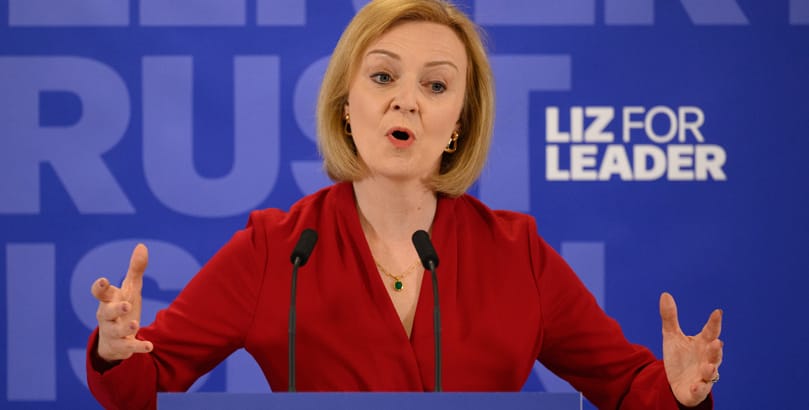
Truss is no stranger to political transformations.
Having marched in her youth side-by-side with left-wingers to demand the ousting of Margaret Thatcher, she is now seen by supporters as the heir to the Iron Lady’s throne.
The highest office in the land is now within grasping distance for Truss, who will face former Cabinet colleague Sunak in a ballot of party members after overcoming the stiff challenge of rival Mordaunt and is favourite in the next UK Prime Minister odds.
The avid Brexiteer, never far from a clash with the European Union, joined the Conservatives after a brush with the Liberal Democrats.
Now the fierce free-marketeer who became only the UK’s second female foreign secretary last year at the age of 46 is aiming to convince party members to give her the top job.
Born in Oxford in 1975 to parents she describes as “left-wing”, her mother, a nurse and a teacher, took a young Ms Truss to marches for the Campaign for Nuclear Disarmament in the 1980s and to “peace camp”.
Aged four, she moved to Paisley in Scotland, where she has recalled yelling a slogan that perhaps no other Tory Cabinet minister has ever yelled before.
“It was in Scottish so it was ‘Maggie, Maggie, Maggie, oot, oot, oot,” she has told the BBC.
But Truss also had an early “fascination” with Thatcher, saying that she was around eight when she agreed to play her during a mock school election. “I got no votes,” she conceded.
Truss says her father, a mathematics professor, has long struggled to comprehend her move to conservatism, believing, perhaps wishfully, she is a “sleeper working from inside to overthrow the regime”.
The family upped sticks to Leeds, where Truss attended the Roundhay state secondary school before studying philosophy, politics and economics at Oxford University.
There she became active in student politics, first with the Liberal Democrats, even once espousing an anti-monarchist sentiment.
“I think it was fair to say that, when I was in my youth, I was a professional controversialist and I liked exploring ideas and stirring things up,” she told the BBC’s Political Thinking With Nick Robinson.
At the 1997 Conservative Party conference, she met future husband Hugh O’Leary. She has two teenage daughters.
Truss worked as an accountant for Shell and Cable & Wireless but her heart was in politics, though she suffered the setbacks of two failed electoral bids.
After the unsuccessful runs for the Tories in Hemsworth in 2001 and Calder Valley in 2005, she was elected as a councillor in Greenwich in 2006 before becoming deputy director of the right-of-centre Reform think tank two years later.
But she was selected as the candidate for the Tory safe seat of South West Norfolk after making it onto David Cameron’s A-list of priority candidates.
She entered Parliament after winning in the 2010 general election by a comfortable majority of more than 13,000 votes.
Her candidacy narrowly survived an attempt by traditionalist members of her local Tory association – nicknamed the “Turnip Taliban” over their conservative views and their local agricultural product – to deselect her after it emerged she had an affair with married Conservative MP Mark Field.
During her early days in Parliament, she co-authored the Britannia Unchained book alongside Thatcherite future Cabinet colleagues Kwasi Kwarteng, Priti Patel and Dominic Raab.
It set out proposals to strip back regulation and encourage innovation, but caused controversy with a claim that British workers are “among the worst idlers in the world”.
Two years after entering Parliament, Truss was part of the Government, being made an education minister in the Tory-Liberal Democrat coalition.
After clashes with Lib Dem deputy prime minister Sir Nick Clegg, she was promoted to environment secretary in 2014.
But while her fortunes were rising in Westminster, her reputation as a speechmaker faltered.
It was in the environment brief that she gave an often-ridiculed address to the Tory conference where she discussed her left-to-right conversion in a pantomime manner.
Her tone switched to a serious one when decrying the state of play that saw the UK importing two thirds of its cheese. “That is a disgrace,” she insisted, deadpan.
Truss’ star kept rising, however, and she did a year as justice secretary before heading to the Treasury as chief secretary and then leading the Department for International Trade.
It was during this period that her prolific and carefully curated social media output saw the department nicknamed the “Department for Instagramming Truss”.
Another political conversion was under way, and she shifted from arguing to stay in the EU at the 2016 referendum to become a strong defender of the decision to leave.
She inherited the role of Foreign Secretary in September after Raab was moved aside in the wake of his handling of the Afghanistan crisis.
Here, she would take a tough stance in talks and anger the EU with legislation threatening to potentially break international law over the Northern Ireland Protocol.
She would also oversee the successful release of Nazanin Zaghari-Ratcliffe and Anoosheh Ashoori from Iranian detention where other ministers had failed.
The Foreign Office gave her a much higher profile and she seized on it with numerous eye-catching photo ops that bore a resemblance to Mrs Thatcher’s escapades.
Though the frequent comparisons with the Tory grandee are at times derided as lazy and sexist, they are comparisons that Ms Truss has clearly sought to encourage.
Truss donned military gear and perched in a tank for pictures during a visit to Estonia, echoing an image of Thatcher in a tank in West Germany in 1986.
Her choice of Russian hat on a visit to Moscow in February emulated that of Thatcher’s three decades earlier, while a leadership debate outfit also bore uncanny similarities.
And she has sought to portray herself as her tax-cutting heir during the fight for No 10, though Sunak has sought to claim the same mantle with his very different approach.
Truss has set the stage, but it is now in the hands of party members to decide whether she will tread the boards as prime minister.
RISHI SUNAK
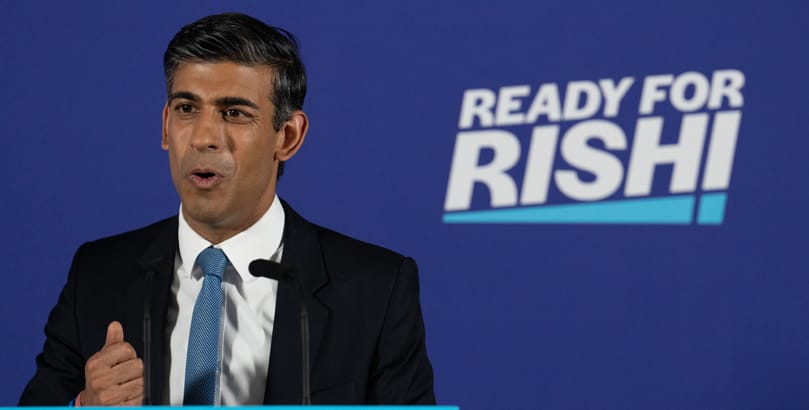
For Sunak, winning the support of Tory MPs was the easy part – now he faces a real battle to gain the backing of Conservative members uneasy about his record in office and his part in the downfall of Johnson.
Once the golden boy of the Tory Party, Sunak enjoyed a meteoric rise under Johnson and for so long appeared to be his most likely successor in the next UK Prime Minister odds.
At the start of the pandemic, he was the most popular politician in the country as he rolled out an unprecedented furlough scheme which saved millions of jobs as the economy ground to a halt.
But now the former chancellor faces a fierce fight to gain the keys to No 10, denounced by allies of the Prime Minister as a treacherous “snake” who brought down his former mentor.
His ambitions had been scarcely concealed since the day he entered No 11, with personalised branding on carefully-curated social media content to boost his public profile along with a concerted campaign to woo MPs which made him the frontrunner in the Westminster stage of the leadership contest.
Born in 1980 in Southampton, the son of parents of Punjabi descent, Sunak’s father was a family doctor and his mother ran a pharmacy, where he helped her with the books.
After private schooling at Winchester College, where he was head boy, and a degree in politics, philosophy and economics at Oxford, he took an MBA at Stanford University in California where he met his wife, Akshata Murty, the daughter of India’s sixth richest man.
A successful business career, with spells at Goldman Sachs and as a hedge fund manager, meant by the time he decided to enter politics in his early 30s he was already independently wealthy.
In 2014, he was selected as the Tory candidate for the ultra safe seat of Richmond in North Yorkshire – then held by William (now Lord) Hague – and was duly elected in the general election the following year.
In the 2016 Brexit referendum he supported Leave, to the reported dismay of David Cameron who saw him as one of the Conservatives’ brightest prospects among the new intake.
Given his first Government post – as a junior local government minister – by Cameron’s successor, Theresa May, he was an early backer of Johnson for leader when she was forced out amid the fallout over Brexit.
When Johnson entered No 10 in July 2019, there was swift reward with a dramatic promotion to the Cabinet as treasury chief secretary.
An even bigger step up followed in February 2020 when chancellor Sajid Javid quit after rejecting a demand to sack all his advisers and Sunak was put in charge of the nation’s finances, at the age of just 39.
The increasingly rapid spread of Covid-19 meant his mettle was swiftly tested. Within a fortnight of his first Budget he was effectively forced to rip up his financial plans as the country went into lockdown.
The new chancellor, who saw himself as a traditional small state, low tax Conservative, began pumping out hundreds of billions in government cash as the economy was put on life support.
But as the country emerged from the pandemic, some of the gloss began to wear off amid growing tensions with his neighbour in No 10 and anger among Tory MPs over rising taxes as he sought to rebuild the public finances.
To add to his woes, he was caught up in the “partygate” scandal, receiving a fine, along with Johnson, for attending a gathering to mark the Prime Minister’s 56th birthday, even though he claimed only to have gone into No 10 to attend a meeting.
There were more questions when it emerged his wife had “non dom” status for tax purposes – an arrangement which reportedly saved her millions – while he had retained a US “green card”, entitling him to permanent residence in the States.
For a man known for his fondness for expensive gadgets and fashionable accessories – and who still has an apartment in Santa Monica – it all looked dangerously out of touch at a time when spiralling prices were putting a financial squeeze on millions across the country.
His frustrations with Johnson’s chaotic style of government – as well as a deepening rift over policy – finally spilled over when he dramatically resigned, prompting the rush for the door by other ministers that forced the Prime Minister to admit his time was up.
It now remains to be seen whether the one-time heir apparent can claim his title, or if he will discover – as others in Westminster have before – that “he who wields the knife never wears the crown”.
Join bwin today and receive up to £20 money back as a FreeBet if your first wager (3+ selections at odds of 1/2 (1.5) or greater) is a loser! Terms and conditions apply.
Next Conservative leader betting Politics betting
